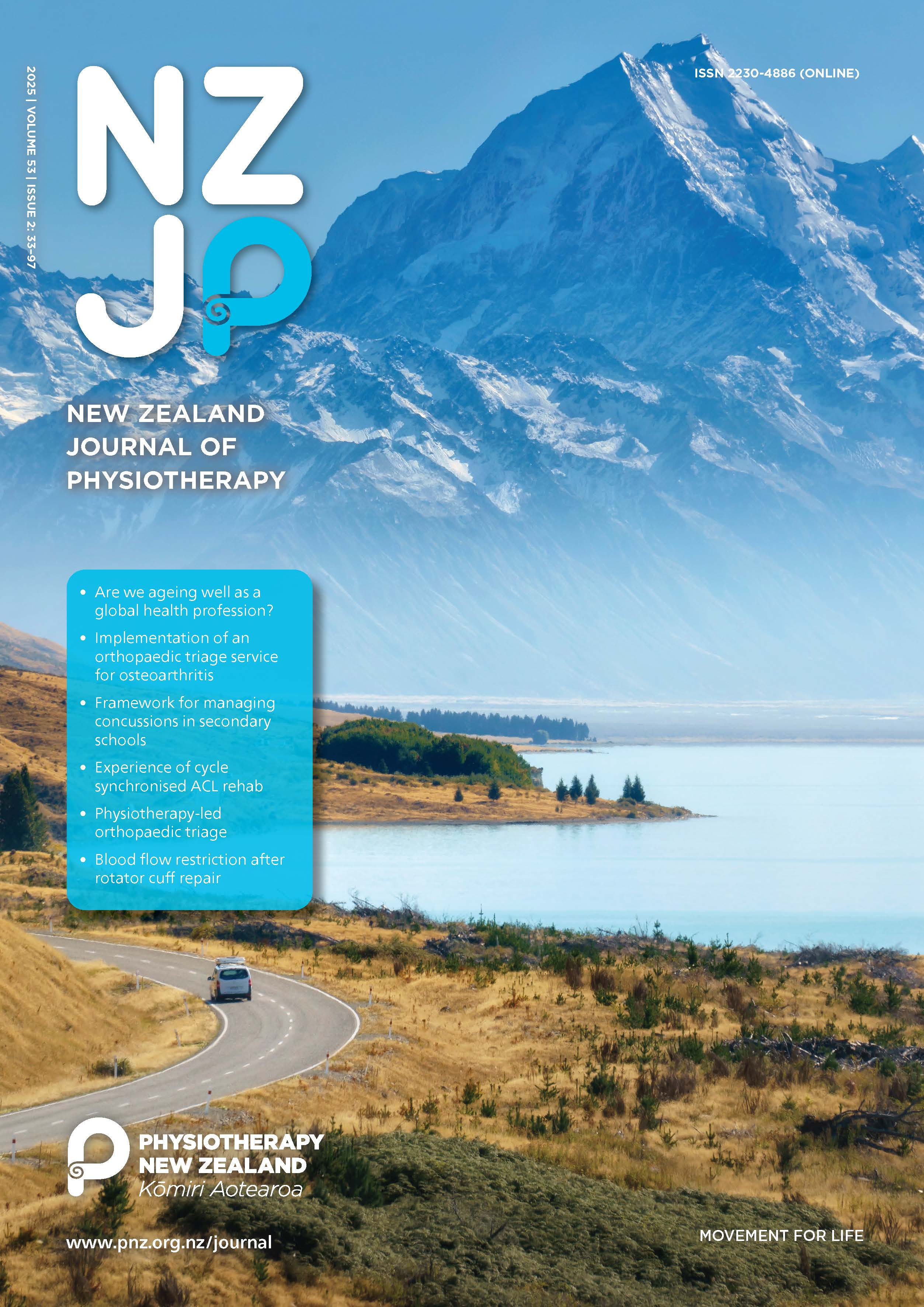Participant’s experiences of a new menstrual-cycle phase-based anterior cruciate ligament rehabilitation programme: A post-hoc qualitative study
DOI:
https://doi.org/10.15619/nzjp.v53i2.470Keywords:
Anterior Cruciate Ligament, Female, Menstrual Cycle, Rehabilitation, Resistance TrainingAbstract
Anterior cruciate ligament (ACL) ruptures are a common problem within the sporting population. Reconstructive surgery and rehabilitation are commonly utilised to improve knee function. Women are disproportionately represented in the ACL rupture population and have poorer clinical outcomes. Research has shown that phasing exercise with the menstrual cycle improves clinical measures of muscle performance. A recently completed randomised controlled trial examined the efficacy of a menstrual cycle synchronised ACL rehabilitation programme. This study aimed to gain participant perspectives of this new menstrual cycle phase-based anterior cruciate ligament rehabilitation programme. Six women participated in research interviews via video conferencing in 2023. All had completed the intervention with satisfactory clinical outcomes. Three themes were constructed from the interviews using reflexive thematic analysis: Acceptability, connectedness, and strength. Overall, the programme was perceived as acceptable. Participants reported positive connections with their physiotherapists and their bodies throughout the programme. An increased sense of strength, both physical and mental, was also experienced. The phasing of the programme was also found to improve motivation. These factors are shown to improve patient engagement in long-term rehabilitation. Therefore, this study supports the premise that menstrual cycle-synced rehabilitation may enhance participant engagement in the rehabilitation process.


